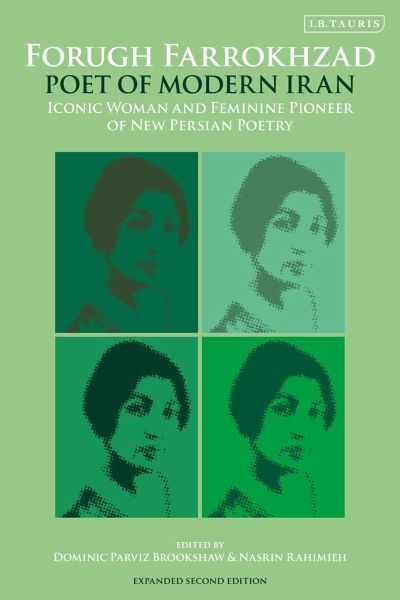
Forugh Farrokhzad, Poet of Modern Iran
Iconic Woman and Feminine Pioneer of New Persian Poetry
Herausgeber: Brookshaw, Dominic Parviz; Rahimieh, Nasrin
Versandkostenfrei!
Versandfertig in ca. 2 Wochen
18,99 €
inkl. MwSt.
Weitere Ausgaben:

PAYBACK Punkte
9 °P sammeln!
The pioneering Iranian poet and filmmaker Forugh Farrokhzad was an iconic figure in her own day and has come to represent the spirit of revolt against patriarchal and cultural norms in 1960s Iran. Five decades after her tragic death at the age of 32, Forugh Farrokhzad, Poet of Modern Iran brings her ground-breaking work into new focus. During her lifetime Farrokhzad embodied the vexed predicament of the contemporary Iranian woman, at once subjected to long-held traditional practices and influenced by newly introduced modern social sensibilities. Highlighting her literary and cinematic innovati...
The pioneering Iranian poet and filmmaker Forugh Farrokhzad was an iconic figure in her own day and has come to represent the spirit of revolt against patriarchal and cultural norms in 1960s Iran. Five decades after her tragic death at the age of 32, Forugh Farrokhzad, Poet of Modern Iran brings her ground-breaking work into new focus. During her lifetime Farrokhzad embodied the vexed predicament of the contemporary Iranian woman, at once subjected to long-held traditional practices and influenced by newly introduced modern social sensibilities. Highlighting her literary and cinematic innovation, this volume examines the unique place Farrokhzad occupies in Iran, both among modern Persian poets in general and as an Iranian woman writer in particular. The authors also explore Farrokhzad's appeal outside Iran in the Iranian diasporic imagination and through the numerous translations of her poetry into English. It is a fitting and authoritative tribute to the work of a remarkable woman which will introduce and explain her legacy for a 21st-century audience. This second edition includes two new chapters which explore a travelogue Farrokhzad wrote during her time in Italy, and an examination of Farrokhzad's influence on the writings of the Afghan female poet Laila Sarahat Rowshani.



